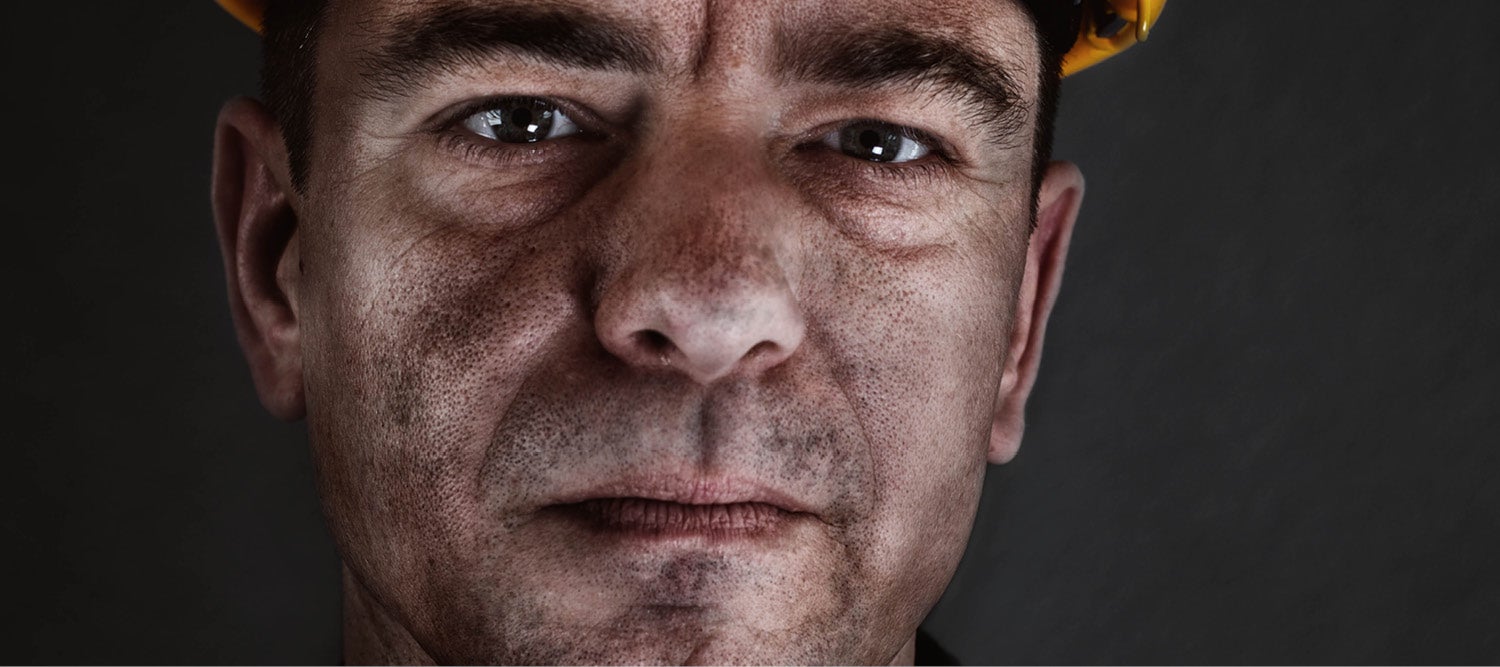
Wesley dust disease research centre
Wesley dust disease research centre

About coal mine dust lung disease
The Wesley Dust Disease Research Centre is studying Coal Mine Dust Lung Disease (CMDLD), the broad term for the spectrum of lung diseases caused by coal mine dust exposure. This includes:
- Coal Workers’ Pneumoconiosis (CWP)
- Chronic Obstructive Pulmonary Disease (COPD)
- Silicosis
- Asbestosis
The prevalence of CMDLD is not known in Australia, however in other industrialised nations such as the United States of America, it is as high as 10.8% in underground coal mine workers.
CMDLD is caused by cumulative inhalation of respirable coal mine dust, and can be characterised into two groups, dependent on whether fibrotic nodules (small areas of scarring) are present. There are three nodular CMDLD diseases; CWP, silicosis and mixed dust pneumoconiosis (MDP).
In severe cases of this disease, the fibrotic nodules are joined together, leading to formation of a mass, termed progressive massive fibrosis (PMF). The formation of lung nodules is not the only mechanism of injury following coal dust exposure. Chronic dust exposure can also lead to lung destruction (emphysema), chronic airway inflammation (bronchitis), COPD and dust-related diffuse fibrosis (DDF).
In the Australian context, CMDLD were believed to be near-eradicated in the 1980s. However, in 2015, the first case of CWP in 30 years was diagnosed in a QLD coal miner. Further cases of CMDLD have been diagnosed since this time however no medical research has been conducted to date to understand the re-identification of CMDLD in Queensland.
Our research
Coal Mine Dust Lung Disease (CMDLD) encompasses a spectrum of lung diseases caused by prolonged exposure to respirable coal mine dust and its particulates. CMDLD are under reported and were thought to eradicated in Queensland for around 30 years until re-identification in 2015.
Active research conducted by our team is centred around creating a database of identified cases. By collating the different cases of CMDLD identified in QLD in one place, we hope to answer a range of research questions. One aim we have is to understand the impact CMDLD has had on an individuals lung health. We also hope to identify any unifying occupational factors that may have contributed to the development of a CMDLD. Ultimately, as a medically-orientated research team we hope to contribute to improving screening, diagnosis and preventative management of CMDLD. Following completion of our initial research into positive cases, we will develop tools for medical professionals to improve the screening process and health outcomes for mine workers.
Our Investigators
The Wesley Dust Disease Research team includes experts in research, radiology, respiratory and occupational medicine.
Dr Katrina Newbigin – Principle Investigator
UCMI SPECIALIST THORACIC RADIOLOGIST
Dr Katrina Newbigin is the Principle Investigator and lead radiologist for the project. She was the first Australian to obtain B-reader certification, a qualification to diagnose occupational lung disease from radiographic imaging.
https://orcid.org/0000-0001-9648-641X
Prof Tim Driscoll
OCCUPATIONAL EPIDEMIOLOGIST
Professor Tim Driscoll is a medical doctor and a leading expert in occupational epidemiology from the School of Public Health at The University of Sydney. His research background is in occupational medicine specific to dust exposure.
Dr Rhiannon McBean
RESEARCH COORDINATOR
Dr Rhiannon McBean is UCMI’s Research Coordinator. Within this role Rhiannon oversees and supports all of UCMI’s research activities. This includes seeing our research projects through all stages of their lifecycle, including planning (study design, sourcing funding, ethics and governance submissions), conducting (data collection, analysis) and completion (reporting, manuscript writing).
